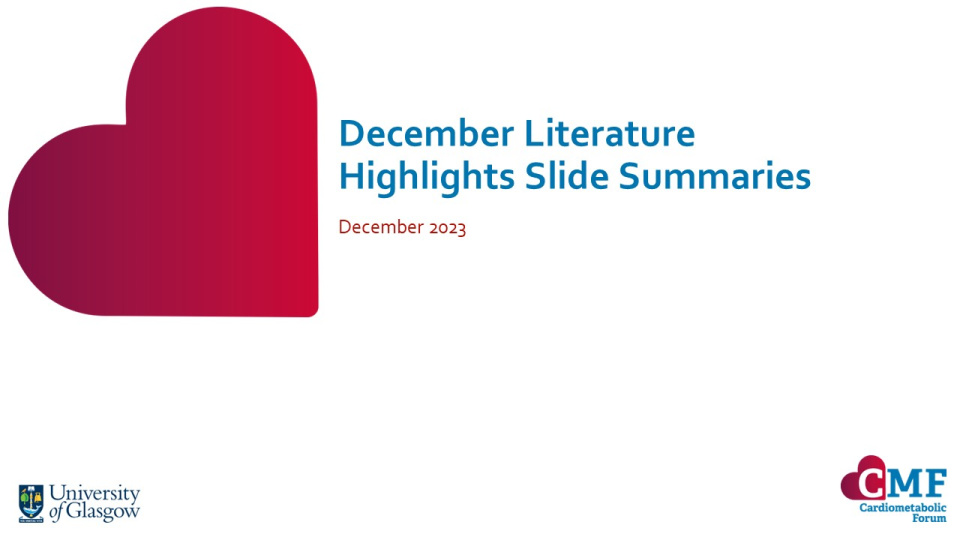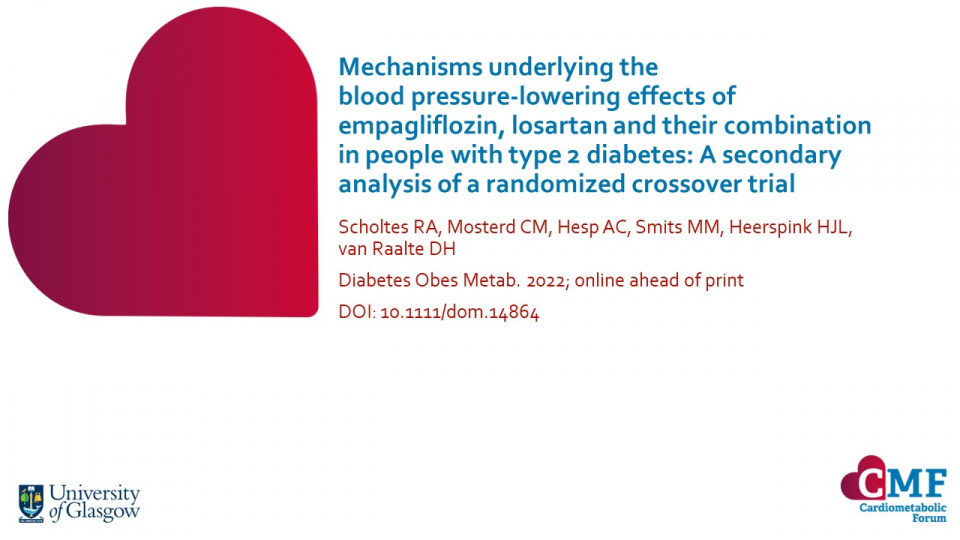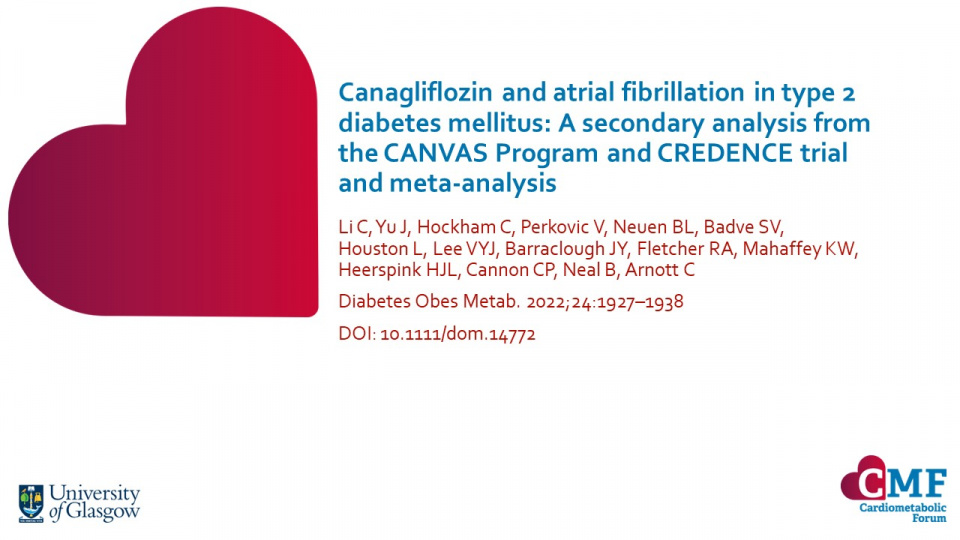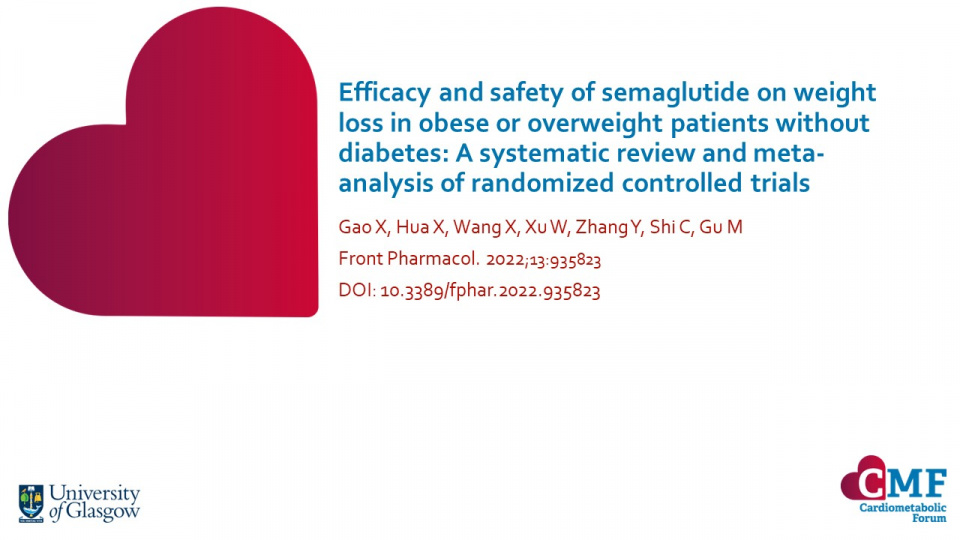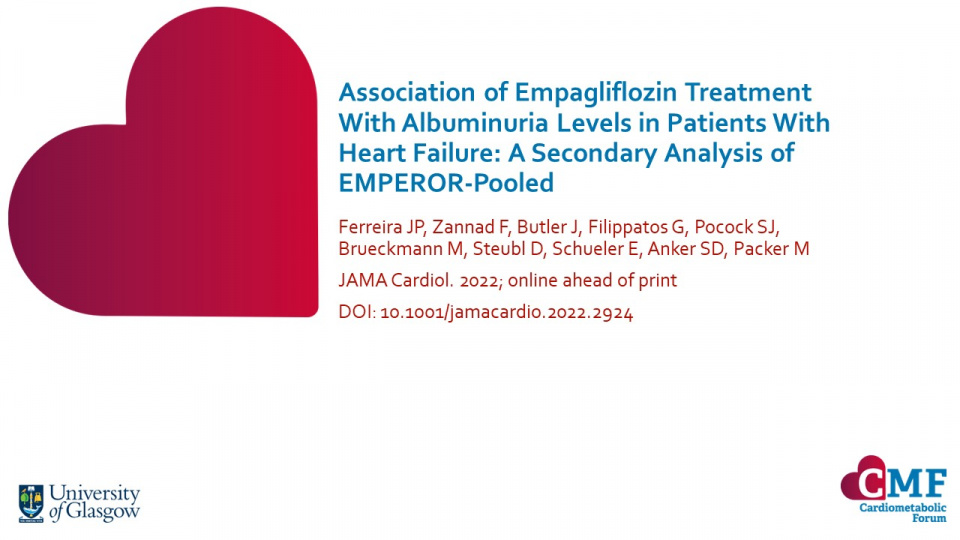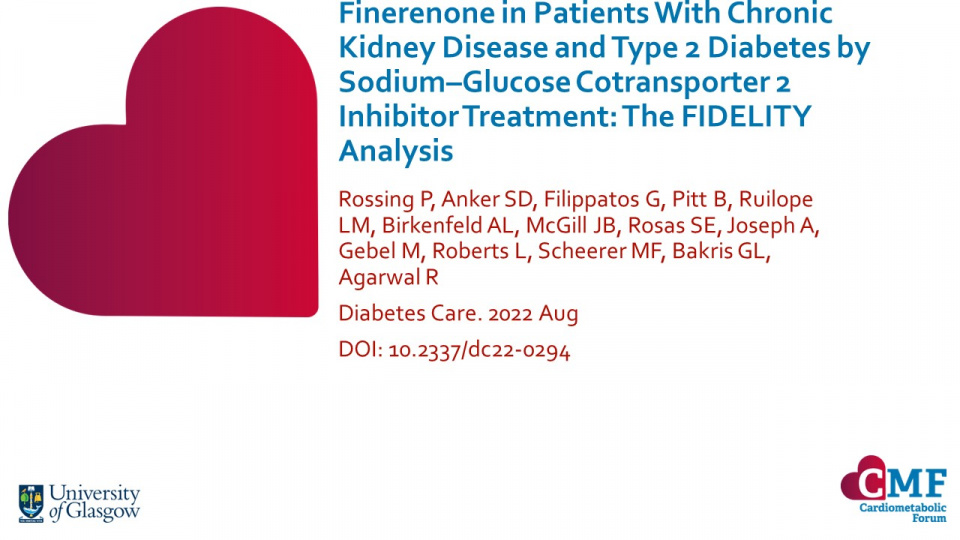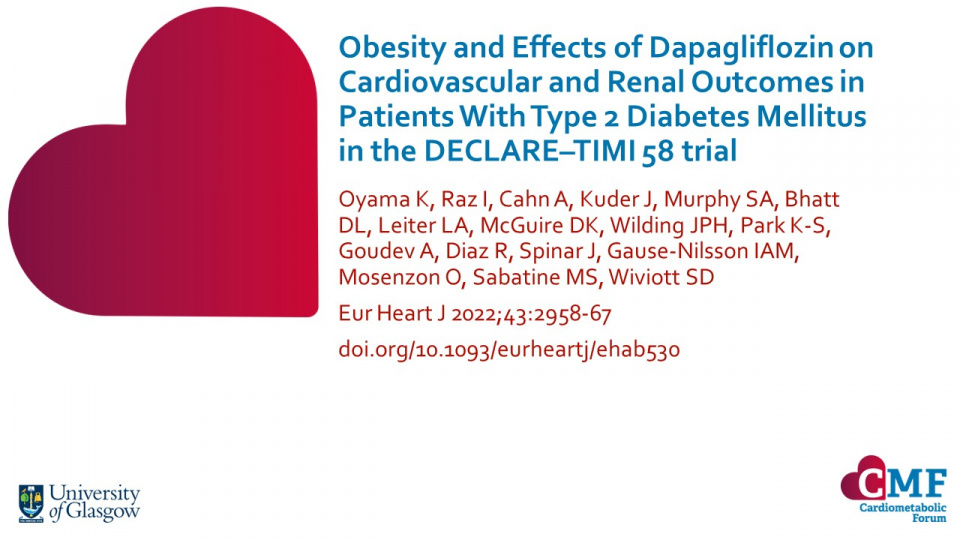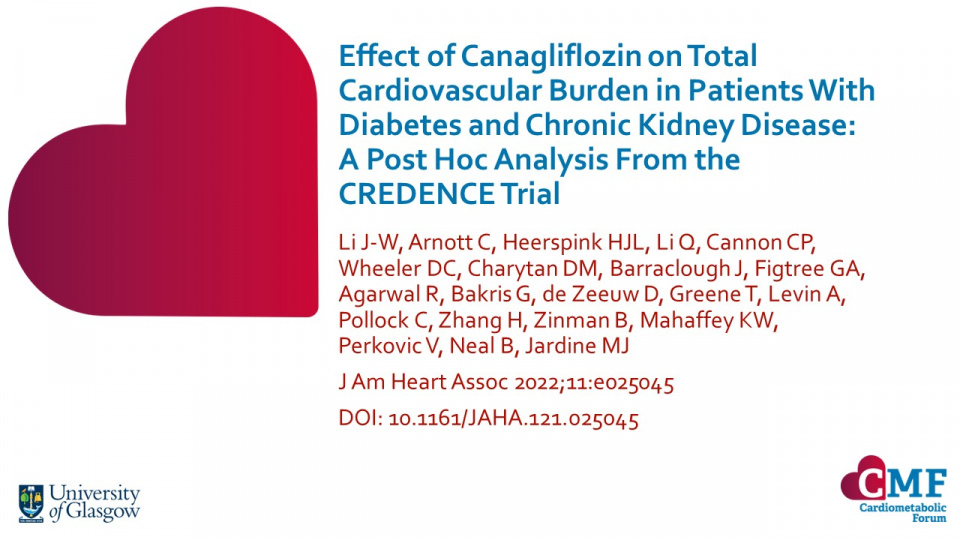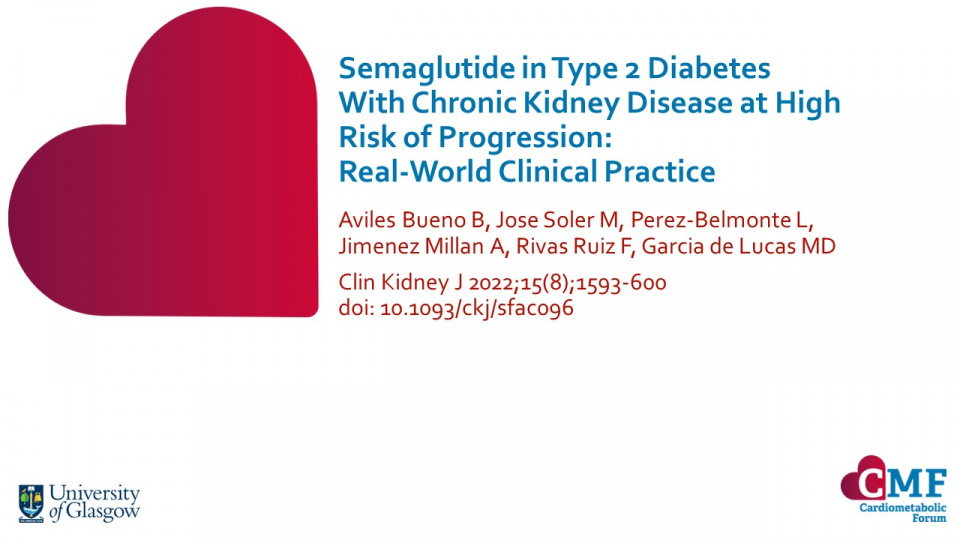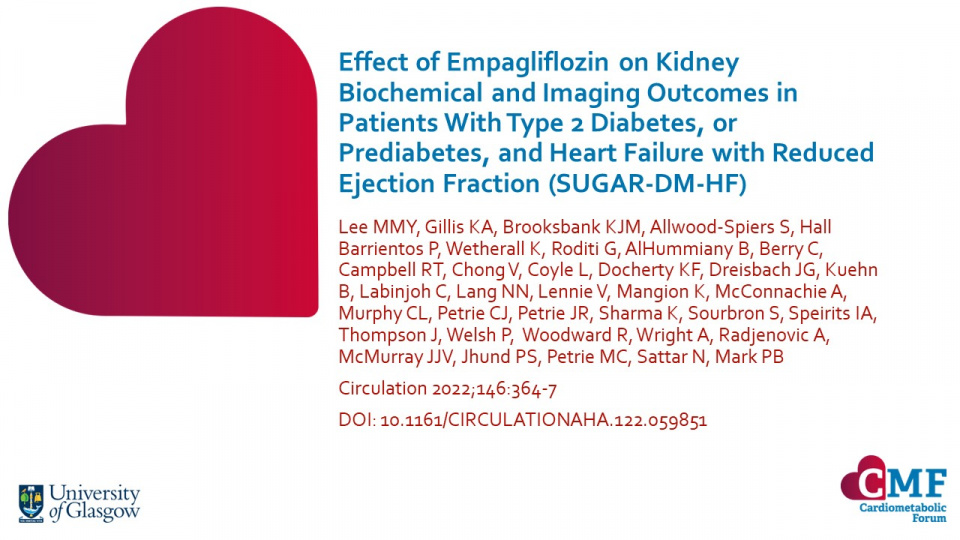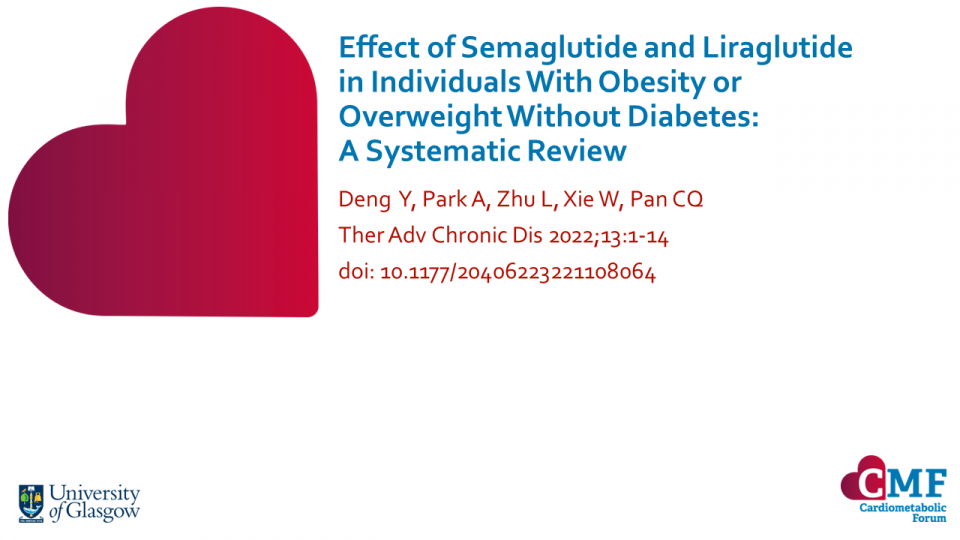Publications
Stay up to date with our literature reviews which are curated by experts to feature the most important publications released each month. Explore our publications for access to concise summary slides for your own use.
Mechanisms underlying the blood pressure-lowering effects of empagliflozin, losartan and their combination in people with type 2 diabetes: A secondary analysis of a randomized crossover trial
Diabetes Obes Metab. 2022; online ahead of print DOI: 10.1111/dom.14864
This prespecified analysis of the RECOLAR study investigated the effects of the sodium-glucose co-transporter-2 inhibitor (SGLT2i), empagliflozin, the angiotensin receptor blocker (ARB), losartan, and their combination on blood-pressure lowering, while studying the mechanisms potentially involved.
Canagliflozin and atrial fibrillation in type 2 diabetes mellitus: A secondary analysis from the CANVAS Program and CREDENCE trial and meta-analysis
Diabetes Obes Metab. 2022;24:1927–1938 DOI: 10.1111/dom.14772
A pooled analysis from the CANVAS Program and CREDENCE trial found that canagliflozin did not have a significant effect on the incidence of atrial fibrillation/atrial flutter (AF/AFL) in patients with type 2 diabetes and high risk of cardiovascular disease or chronic kidney disease.
Efficacy and safety of semaglutide on weight loss in obese or overweight patients without diabetes: A systematic review and meta-analysis of randomized controlled trials
Front Pharmacol. 2022;13:935823 DOI: 10.3389/fphar.2022.935823
This meta-analysis investigated the effects of a range of doses of semaglutide in obese or overweight patients without diabetes. Other meta-analyses have investigated effects in patients with or without diabetes and assessed only the 2.4 mg-once-weekly dose of semaglutide.
Association of Empagliflozin Treatment With Albuminuria Levels in Patients With Heart Failure: A Secondary Analysis of EMPEROR-Pooled
JAMA Cardiol. 2022; online ahead of print DOI: 10.1001/jamacardio.2022.2924
In a post-hoc analysis of EMPEROR-Pooled, empagliflozin was associated with a reduction in the primary outcome irrespective of albuminuria levels at baseline compared with placebo, and there was reduced progression to macroalbuminuria and reversion of macroalbuminuria.
Finerenone in Patients With Chronic Kidney Disease and Type 2 Diabetes by Sodium–Glucose Cotransporter 2 Inhibitor Treatment: The FIDELITY Analysis
Diabetes Care 2022; online ahead of print doi: 10.2337/dc22-0294
In the FIDELITY analysis, finerenone reduced the risk of cardiovascular and kidney outcomes compared with placebo. Concomitant treatment with a sodium-glucose cotransporter-2 inhibitor (SGLT2i) did not modify the observed benefits.
FIDELITY pooled populations from the FIDELIO-DKD and FIGARO-DKD studies in order to examine the effect of finerenone and interaction with SGLT2i use on prespecified outcomes in patients with chronic kidney disease (CKD) and type 2 diabetes (T2D). In both trial, use of SGLT2i was permitted at baseline, as was initiation of SGLT2i at any time during the trial.
Obesity and Effects of Dapagliflozin on Cardiovascular and Renal Outcomes in Patients With Type 2 Diabetes Mellitus in the DECLARE-TIMI 58 trial
Eur Heart J 2022;43:2958-67 doi.org/10.1093/eurheartj/ehab530
In the DECLARE-TIMI 58 trial, patients with type 2 diabetes and higher body weight were more likely to have hospitalisation for heart failure (HHF) and atrial fibrillation or flutter (AF/AFL).
Effect of Canagliflozin on Total Cardiovascular Burden in Patients With Diabetes and Chronic Kidney Disease: A Post Hoc Analysis From the CREDENCE Trial
J Am Heart Assoc 2022;11:e025045 DOI: 10.1161/JAHA.121.025045
Cardiovascular disease is highly prevalent, and represents a major burden in patients with both T2D and CKD. In the CREDENCE trial, canagliflozin reduced the risk of first composite cardiovascular events; this post hoc analysis evaluated the effect on total (first and recurrent) events. During the trial, a total of 883 cardiovascular events occurred in 634 patients; 72% were first and 28% were subsequent events. Analysis showed canagliflozin reduced first and total cardiovascular events by 26% and 29%, respectively, with consistent results across patient subgroups and by baseline cardiovascular history.
These findings provide further support for the benefit of continuing canagliflozin therapy after an initial event to prevent recurrent CV events.
Semaglutide in Type 2 Diabetes With Chronic Kidney Disease at High Risk of Progression: Real-World Clinical Practice
Clin Kidney J 2022;15(8);1593-600 doi: 10.1093/ckj/sfac096
In this real-world study, patients with type 2 diabetes (T2D) and chronic kidney disease (CKD) treated with semaglutide significantly improved glycaemic control and decreased weight.
Effect of Empagliflozin on Kidney Biochemical and Imaging Outcomes in Patients With Type 2 Diabetes, or Prediabetes, and Heart Failure with Reduced Ejection Fraction (SUGAR-DM-HF)
Circulation 2022;146:364-7 DOI: 10.1161/CIRCULATIONAHA.122.059851
This study found that a reduction in kidney perfusion and congestion may be mechanisms by which sodium-glucose cotransporter-2 inhibitors (SGLT2i) affect kidney function in people with heart failure with reduced ejection fraction (HFrEF). The authors believe this is the first kidney MRI trial using SGLT2i in this patient group.
Effect of Semaglutide and Liraglutide in Individuals With Obesity or Overweight Without Diabetes: A Systematic Review
Ther Adv Chronic Dis 2022;13:1-14 doi: 10.1177/20406223221108064
This systematic literature review found liraglutide and semaglutide led to clinically relevant (≥5%) weight loss in 48.2–88.7% of obese or overweight adults without diabetes.
Data on the effects of liraglutide and semaglutide in diabetes are well-known, but therapeutic outcomes in obese or overweight individuals without diabetes have not been summarised. This systematic review aimed to evaluate their effects in this population, and 18 studies representing 10,938 patients were included.

